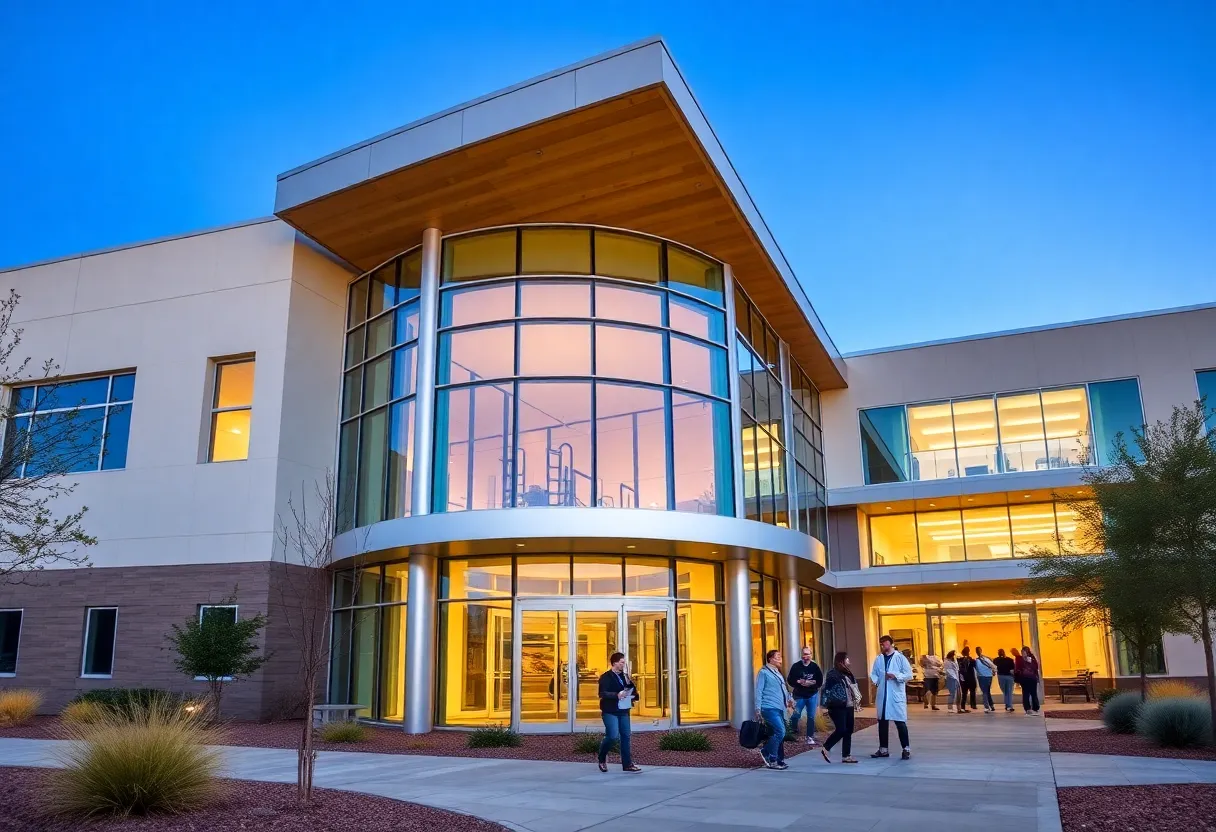News Summary
Arizona legislators and educational institutions are collaborating to address the outflow of medical graduates, with over 40% leaving the state after residency. Key measures include new legislation aimed at enhancing local pre-med programs and expanding residency positions. Initiatives by educational leaders also focus on providing internships and forming clinical partnerships to retain students. Significant investments in medical education facilities, such as new schools, are being made to improve health outcomes and foster innovation within the healthcare sector.
Phoenix, Arizona – Collaborative efforts between Arizona legislators and educational institutions are underway to address the notable outflow of medical graduates from the state, with statistics showing that over 40% of pre-med students who complete residency training in Arizona opt to pursue career opportunities elsewhere. State Senator Carine Werner is at the forefront of this initiative, working actively to reduce this significant retention issue within the state’s healthcare workforce.
To combat this trend, Senator Werner has sponsored two crucial pieces of legislation. The first, SB 1727, mandates that pre-med programs interview all qualifying Arizona residents, aiming to increase the chances of local students entering the medical field within the state. The second measure, SB 1623, proposes an expansion of residency programs across Arizona, seeking an authorization of more than $28 million to facilitate this growth. These legislative efforts are poised to strengthen the number of medical professionals who choose to remain in the state after their education.
Educational leaders, including Lisa Smith, dean of Grand Canyon University’s College of Nursing, emphasize the importance of providing incentives to students. This not only includes the establishment of internships but also the formation of clinical partnerships with local healthcare facilities. As part of these efforts, students like Bishop Audineo, a nursing student at GCU, highlight the enriching experience of their studies and local hospital engagement as pivotal in their decision to remain in Arizona after graduation.
Expansion of Medical Education Facilities
In addition to legislative changes, Arizona’s educational institutions are investing in the infrastructure needed to support medical education. Arizona State University (ASU) has announced plans for a new medical school and health research hub in Phoenix’s Bioscience Core, which will span 200,000 square feet. This facility is designed to include classrooms, laboratories, and study spaces, as well as simulated operating rooms to prepare students for real-world medical challenges. It will offer degrees that include both MD and master’s degrees in engineering.
The new ASU Health facility aims to improve health outcomes and foster innovation within the healthcare sector, contributing to the broader goals set forth by the Arizona Board of Regents’ “AZ Healthy Tomorrow” initiative, which focuses on enhancing the state’s healthcare workforce.
Multi-Institution Development Initiatives
Alongside ASU, Northern Arizona University is also advancing its commitment to medical education by developing a new medical school with an emphasis on primary care and partnerships with healthcare systems across the state. Moreover, the University of Arizona is reinforcing its role in healthcare education by planning to double the number of medical graduates through the expansion of its existing programs. The newly established College of Health Sciences at the University of Arizona will play a critical role in developing strategic healthcare workforce solutions.
Despite these efforts, current statistics indicate that only about 30% of medical graduates from Arizona remain in the state, highlighting the urgent need for effective measures to bridge this retention gap. Educators from Creighton University have stressed the importance of increasing residency and fellowship opportunities as a means of retaining graduates within Arizona’s healthcare system. Additionally, hospitals across the state are being encouraged to develop more residency programs to attract and keep healthcare professionals.
As stakeholders in Arizona continue their efforts to reduce the outflow of medical graduates and strengthen the healthcare workforce, it will be crucial to monitor the effectiveness of legislative actions and educational expansions in addressing these critical challenges.
Deeper Dive: News & Info About This Topic
HERE Resources
Heroic Actions of Phoenix Police Officer Save Baby’s Life
Increase in Disciplinary Actions Against Educators in Arizona
Arizona Governor Establishes Heat Safety Task Force
Tragic Drowning Incident Claims Life of 3-Year-Old in Arizona
Arizona Science Center Launches Community Engagement Initiative
Arizona Governor Signs 34 Bills and Vetoes 23 Legislative Measures
Phoenix Police Investigate Death of 19-Year-Old
Phoenix Transforms Park Central Mall into a Modern Mixed-Use Hub
Phoenix to Break Ground on Innovation 27 Center
Valley Schools Receive Grants for Healthy Eating Programs
Additional Resources
- KTAR: Medical School Students in Arizona
- AZCentral: ASU’s New Medical School Site
- AZ Big Media: Arizona’s Health Education Expansion
- ABC15: Residency Shortage in Arizona
- Wikipedia: Medical Education in the United States
Author: STAFF HERE PHOENIX WRITER
The PHOENIX STAFF WRITER represents the experienced team at HEREPhoenix.com, your go-to source for actionable local news and information in Phoenix, Maricopa County, and beyond. Specializing in "news you can use," we cover essential topics like product reviews for personal and business needs, local business directories, politics, real estate trends, neighborhood insights, and state news affecting the area—with deep expertise drawn from years of dedicated reporting and strong community input, including local press releases and business updates. We deliver top reporting on high-value events such as the Waste Management Phoenix Open, Cactus League Spring Training, and Arizona State Fair. Our coverage extends to key organizations like the Greater Phoenix Chamber of Commerce and Visit Phoenix, plus leading businesses in technology and healthcare that power the local economy such as Intel and Banner Health. As part of the broader HERE network, including HERETucson.com, we provide comprehensive, credible insights into Arizona's dynamic landscape.





